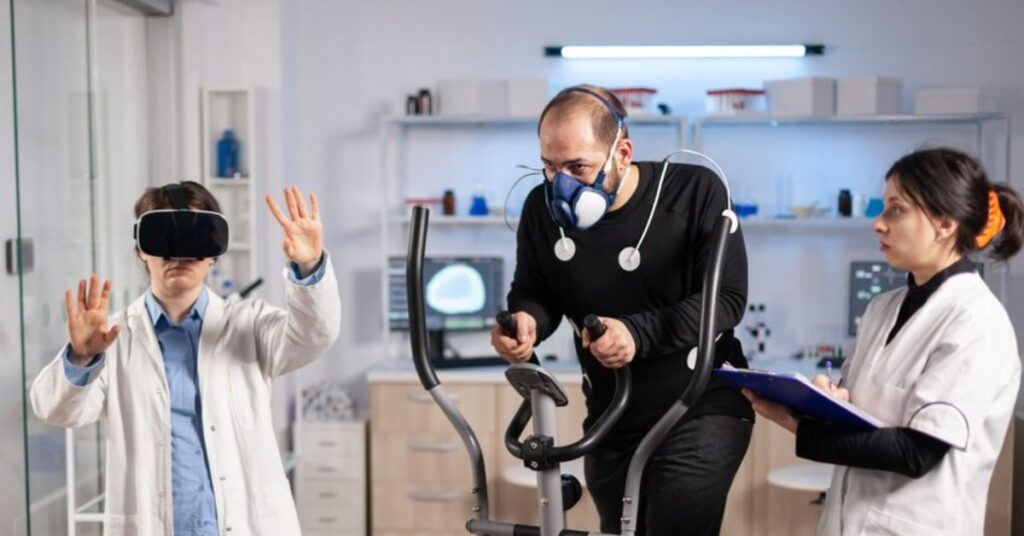Artificial intelligence is reshaping the way medical care is delivered and improving patient outcomes. By leveraging intelligent systems, healthcare providers can enhance diagnostics, personalize treatment, and streamline operations. This article explores the key ways AI is revolutionizing the healthcare landscape and creating more effective solutions.
Enhancing Diagnostics with AI in the Health Sector
AI in healthcare is playing a pivotal role in improving diagnostic accuracy and efficiency. Advanced algorithms analyze large datasets to detect patterns that human experts might overlook. For example, AI-powered imaging tools can precisely identify anomalies in scans, allowing for earlier detection of conditions such as cancer or cardiovascular diseases.
This capability reduces the likelihood of misdiagnosis and ensures patients receive timely care. Additionally, these systems continuously learn and adapt, further refining their accuracy over time. The result is a more dependable diagnostic process that benefits both providers and patients. Enhanced diagnostic tools also reduce delays, ensuring better healthcare access.
Personalizing Treatment Plans
One of the most impactful uses of AI in the medical field is the ability to tailor treatment plans to individual needs. By analyzing genetic, lifestyle, and clinical data, AI systems can recommend personalized interventions that are more effective.
For instance, these systems can identify which medications are likely to work best for specific patients based on their genetic makeup. This reduces trial-and-error prescribing, minimizes side effects, and improves overall treatment outcomes.Personalized care delivers a twofold benefit: increased patient satisfaction and optimized resource utilization through the delivery of targeted and efficient treatments. These tailored solutions improve the overall healthcare experience significantly.
Streamlining Administrative Processes
Administrative tasks significantly burden healthcare providers, taking valuable time away from patient care. AI-powered systems streamline these processes, allowing providers to focus on their primary responsibilities. From scheduling appointments to managing billing and maintaining records, intelligent systems automate repetitive tasks with high accuracy.
This reduces errors and ensures that administrative operations run smoothly. Furthermore, automation enhances communication between providers and patients, enabling faster response times and improved service delivery. The time saved can be redirected to enhancing the quality of care. Effective automation improves operational efficiency while supporting care delivery goals.
Improving Predictive Analytics for Better Outcomes
Predictive analytics powered by AI is transforming the way medical professionals anticipate and manage health conditions. These systems predict potential health risks and suggest preventive measures by analyzing historical and real-time data.
For example, AI systems can flag patients at risk of developing chronic illnesses based on their health history and lifestyle choices. This allows for early interventions, reducing the need for more intensive treatments later. Predictive analytics also supports hospital resource management by forecasting patient admission rates and optimizing staffing levels, ensuring a seamless care experience. Advanced predictions help improve patient safety while minimizing avoidable complications.
Supporting Data-Driven Insights in Medical Research
AI tools are invaluable for accelerating research efforts and generating actionable insights from complex data. By analyzing vast datasets, they identify trends and correlations that aid in developing new treatments and protocols.
For healthcare providers, these insights enable better decision-making and continuous improvement in service delivery. AI-powered analytics provide a clearer understanding of patient needs, allowing organizations to refine their strategies and offer more effective care solutions. This data-driven approach ensures that resources are utilized optimally, improving patient satisfaction and outcomes. The continuous analysis leads to groundbreaking discoveries that shape modern medicine.
AI in healthcare is revolutionizing healthcare by improving diagnostic accuracy, enabling personalized treatment plans, and optimizing administrative workflows. Predictive analytics and data-driven insights further ensure that healthcare providers can anticipate needs and deliver superior care. By embracing intelligent systems, the medical field can continue evolving, leading to better patient and provider outcomes.







